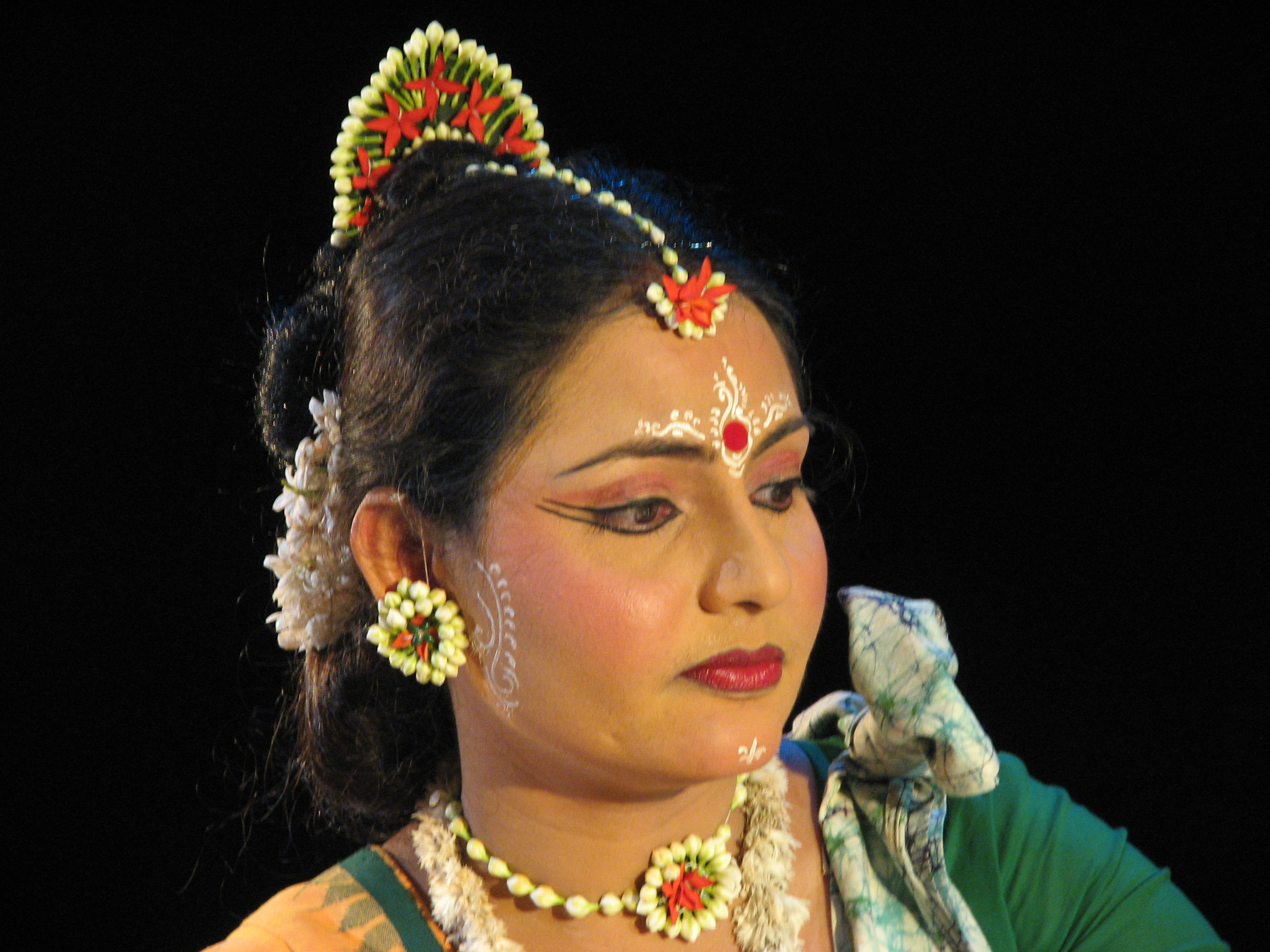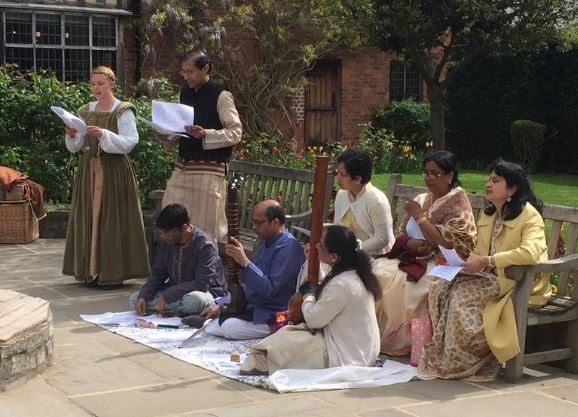
Tagore’s English Gitanjali was the collection of poetry which led to international recognition and to his Nobel Prize for Literature in 1913. 2012 is the 100th anniversary of the completion and publication of the English Gitanjali.
With poems from the English Gitanjali and performances of the corresponding songs in the original Bengali, The Story of Gitanjali is a 1-hour show which explains how Tagore came to write the English Gitanjali in 1912.
The Brussels performance
A multilingual version of The Story of Gitanjali was part of the Brussels charity gala premiere of Chitrangada on 23 September 2012. Each of the poems in The Story of Gitanjali was presented in a different language by different actors. The Bengali songs corresponding to most of the poems were performed by a small team of singers and musicians from India.
Adriana Opromolla – Italian poem

Adriana began acting at the age of 16. Numerous appearances soon followed as a radio and TV speaker, and as a presenter of cultural events in Italy. She performed professionally in a variety of theatre genres ranging from Shakespeare to modern Italian authors. Even after moving abroad, Adriana pursued her not-so-secret passion for theatre and arts by joining an English-speaking group and developing her singing talent.
Adriana first read Tagore’s Love Poems while still a teenager. She was charmed by his elegant verses, his refined yet so deep and passionate feelings, his mysticism. She translated the Italian version of Tagore’s dance-drama Shyama in 2009. Today she enthusiastically continues her personal journey into Tagore’s poetry, spirituality and philosophy.
Ágnes Karzás – Hungarian poem
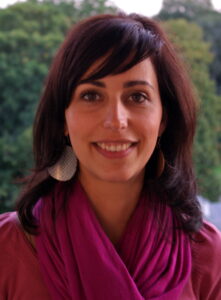
Since her early years, Ágnes has been an enthusiastic performer. Whether it was storytelling, reciting poems or theatre, she loved being on stage.
After working as lawyer for some years, Ágnes has recently decided to return to her real passion. She has set up her own business as coach-kinesiologist, focusing especially on creativity.
The Gitanjali poem she is reciting resonated particularly with her: “… I am uneasy at heart when I have to leave my accustomed shelter; I forget that there abides the old in the new, and that there also thou abidest. Through birth and death, in this world or in others, wherever thou leadest me it is thou, the same, the one companion of my endless life who ever linkest my heart with bonds of joy to the unfamiliar. …”
Alexandra Shlyopinka – Russian poem

Alexandra was born in Karaganda, Kazakhstan. She is a performer with very strong passion for literature and music.
During her school days, she was always involved in different school theatre performances. At a later stage, residing in Moscow, she regularly watched the numerous classic and modern performances held in the Russian capital.
Alexandra’s first encounter with the poems of Rabindranath Tagore was at school, through the translations by one of the most acclaimed Russian poets of the beginning of the 20th century –Anna Akhmatova. Having heard about The Story of Gitanjali being performed in Brussels, she is happy and honoured to present one of the magnificent poems of the Gitanjali in her Mother tongue.
Arlette Schreiber – French poem

Arlette Schreiber was born in Brussels. At the end of the war, she gave up studying and worked as a secretary. But she hadn’t counted on the irresistible attraction of French literature. She studied articulation and theatre in evening classes, obtained the Médaille du Gouvernement, continued evening classes at the Rideau de Bruxelles and won first prize there.
After being spotted by Jacques Huisman, she joined the Théâtre National de Belgique. She stayed there for 16 years and was entrusted with leading roles. She received the Eve du Théâtre, which recognises the best theatre comedienne of the year. She then performed alternately at the Théâtre du Parc, the Rideau de Bruxelles, the Théâtre des Galeries and the Théâtre de Poche. She has made numerous tours in South America, France, Congo, etc.
Arlette has been visiting India regularly for many years and has visited the house of Tagore. With her husband, a former actor, she has adopted two little Indian girls.
Asit Ghosh – percussionist (tabla/khol/pakhawaj)
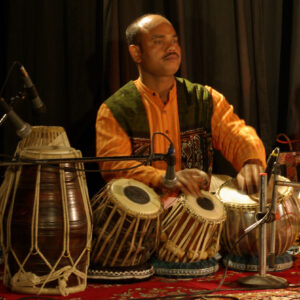
Asit was the percussionist for Chitrangada. He has trained with different gurus: Professor Dulal Mukherjee (tabla), Professor Manas Das Gupta (tabla), Professor Swapan Ghosh (pakhawaj) & Pandit Jayanta Bose (tabla).
He completed his BMus in Tabla & Pakhawaj in 1998 and his MMus in Tabla & Pakhawaj in 2000, both from Visva-Bharati University.
He won first prizes as an accompanist at the East Zone Youth Festival in 1998, National Youth Festival in 1999 and SAARC Festival in 1999. He has taken part in many programmes with different groups in Santiniketan, as well as on All India Radio and Doordarshan (Indian television).
He regularly accompanies performances by pupils of Santiniketan Sishuthirtha and was the percussionist for the CD Jete chai mon – Desh, the Musical journey.
Jee Reusens – Dutch poem
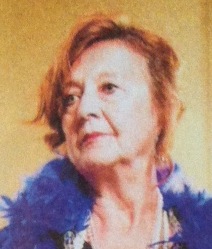
Jee Reusens developed an interest in theatre after finishing teacher-training college. She joined an amateur theatre group with the intention of working with children and, little by little, what started as a hobby became a passion.
She is active in several theatre groups in Antwerp. Last summer, she took part in a production at the popular festival ‘Zomer van Antwerpen’.
She is interested in everything related to theatre, from costume design to props. She has even given courses on making hats.
She loves working with different people and being in contact with other cultures. Her visit to India some years ago made a lasting impression on her. Her first exposure to Tagore was through poetry text books and quotes in birthday cards.
Josef Schwarz – Czech poem
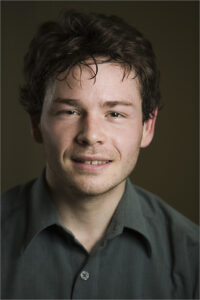
Josef Schwarz is a member of the Jen tak (Just so) Czech theatre in Brussels. He has acted in plays by Czech authors such as Karel Čapek and Josef Kajetán Tyl. His previous roles have included being a dung-beatle interested only in its ball, an old fairy waterman sharing his wisdom with others, a young man seeking his fortune in the 19th century United States and a toothpaste advertiser.
Josef has also written a few poems in the form of personal prayers. He has heard the Czech equivalent of Tagore‘s name (Thákur) in trams in Prague many times because a tram station is named after him in the area where his parents live.
Kaberi Chatterjee – singer
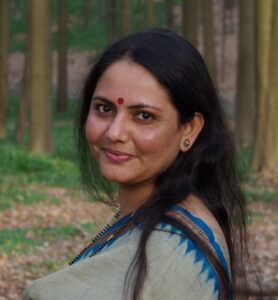
Kaberi has danced the title roles in various major productions of all three of Tagore’s dance-dramas, as well as the lead roles in his musicals, some of which she has choreographed. She is an authority on the Tagore dance form, as well as being one of the leading traditional Manipuri dancers of her generation. She has also performed as a singer in many concerts and has recorded a number of songs to accompany her dance performances and Kaberi’s Indian dance workout.
With her doctoral thesis on the influences of different dance styles on the Tagore dance form, she became the first person to obtain a PhD in Dance from Visva-Bharati University. She is one of only a handful of people to have received a PhD in Dance from an Indian university. Kaberi has performed extensively in India and toured Egypt, Japan, Bangladesh and Europe. She has devised and choreographed Kaberi’s Indian dance workout and performed the title roles in film versions of the dance-dramas Chitrangada, Chandalika and Shyama.
Konstanze Hanreich – German poem

Born and raised in Vienna/Austria, Konstanze quickly discovered her passion for theatre. As the daughter of a professional musician and with a great interest in art, she joined the “Krauss Actor School” in Vienna and studied German and History at the University of Vienna.
During her studies she was an active member of an Austrian theatre group, which she managed after a while for ten years. In 1996 she moved to Brussels and began as a theatre teacher at the European Schools of Brussels.
In 2002 she joined the German Theatre Group of the European Commission, and in 2006 she took over the artistic management of the group.
Luisa Castellanos – Spanish poem

Luisa Castellanos was born in Granada in Andalusia, the birthplace of flamenco. There, she began her academic training in Classical Spanish, Flamenco and Contemporary Dance in the conservatories of Seville, Granada and Madrid, where she graduated as a dancer and choreographer.
At the International Centre of Choreography she worked alongside such famous artists as Mainma, Mariquilla, Matilde Coral, Maria Angelica, Rafael Amargo, Adrian Sanchez, … . Shortly afterwards she founded her own company “Ballet Español” and the “Luisa Castellanos School of Dance” in Granada.
In Brussels since 2002, she created “Flamenco Fusion”, blending traditional and contemporary flamenco with other dance forms and world music. She teaches flamenco at the European Commission and in various dance academies and cultural centres in Brussels, where she continues to share her passion.
Manini Mukhopadhyay – singer
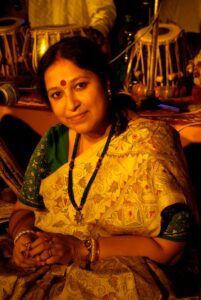
Manini is one of the leading singers of Tagore songs (Rabindrasangeet). She comes from a very musical family in Santiniketan and was taught to sing by her parents, Sheetal Mukhopadhyay and Chhobi Mukhopadhyay. Since 1990, she has been trained by Alpona Ray.
Manini has taken part in many televised productions and live performances. She has recorded seven albums to date.
As well as her performance career, Manini has a Masters degree in Bengali literature and a Masters degree in Rabindrasangeet, both from Visva-Bharati. She is currently researching her PhD thesis on Rabindrasangeet at Visva-Bharati University under the guidance of Dr Ashok Kumar Ganguly and Dr Indrani Mukhopadhyay.
Maria Glowacz – Polish poem

Maria was born in Poland. As a student, she used to take part in various regional poetry recital competitions, winning first prizes. As a member of the student theatre, she performed Janusz Korczak, which includes a staging of Tagore’s play The Post Office.
Maria studied Polish Literature at the University of Gdansk and her degree topic was Poetry, under the direction of Professor Tuczynski, specialist of Oriental Literature. She was a journalist in Poland and has lectured in Polish language and literature at the Université Libre de Bruxelles.
Maria is currently preparing a collection of her father’s poems. She works for the European Commission, where she was elected to the Local Staff Committee and is political secretary of trade union Renouveau & Democratie.
Obhi Chatterjee – Narrator/Director
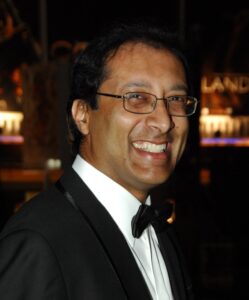
Obhi was born and brought up in London, the son of Bengali parents (Padma & Jayanta Chatterjee) who regularly organised cultural events in and around London which usually featured the music, plays and dance of Rabindranath Tagore. He has accompanied some of the top singers of Rabindrasangeet on tabla, including Subinoy Roy and Kanika Banerjee.
He has been a keen film and theatre-goer since he was a child, as well as being fascinated by technology. Since his marriage to Kaberi Chatterjee, Obhi has been exploring the possibilities presented by modern technology to develop his creative side and to promote international awareness of the works of Nobel laureate Rabindranath Tagore.
Apart from directing all three films in the Tagore dance film trilogy (Shyama, Chandalika and Chitrangada), he directed the live performances of Shyama in Egypt by Kaberi and her team in January 2012. The show, which was subtitled in English and Arabic, toured five major theatres including the Cairo and Alexandria Opera Houses.
Olga Profili – Greek poem
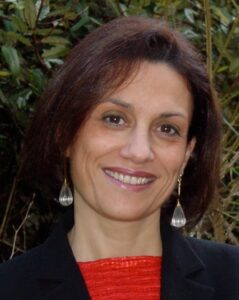
Olga was born in Athens. She has studied Italian and Italian Literature as well as the Linguistics of Romance both in France and in Italy. After completing her PhD on a Greek dialect of Southern Italy, she was awarded a Junior Research Fellowship at Oxford University, where she was doing research on Italian intonation and teaching French linguistics.
As a European Commission official, Olga worked in areas such as Translation, Language Policy and Communication. She is a former President of the Commission’s Staff Committee.
Olga now divides her time between Brussels and Kardamili in Southern Greece. She is writing her first novel and dedicates her free time to gardening, dance and jazz singing.
Prajna Paramita – English poem
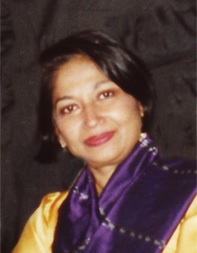
The daughter of Professors of English Literature, Prajna grew up in India watching modern European plays staged and directed by her parents.
At age five, in boarding school, Prajna was chosen to play the lead in the primary school play, and acting became a passion throughout her student years. She played leading roles in Shakespeare, Priestley, Wilde, Ionesco, Schaffer and more.
Acting was not a ‘serious’ career option in India at that time and Prajna went on to become a diplomat – another type of performance – which brought her to Europe in 1976. But the theatre remained a hobby, and she continued acting in Europe, notably playing Cleopatra in The Brussels Shakespeare Society’s production of Antony and Cleopatra. Prajna now acts in independent films under her stage name Farhat Ajnabi.
Raluca Zaharia – Romanian poem
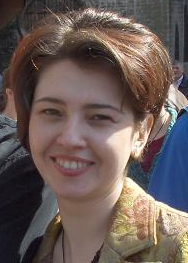
Raluca Zaharia was born in Iasi (Romania) in a family with various artistic talents: drama, music, ballet. She graduated from the „George Enescu” University of Arts, „Art of Puppetry and Marionette Handling” department.
From 2005, she continued her academic studies in Belgium at the Catholic University of Louvain-la-Neuve. She obtained a magna cum laudae Masters degree in Performing Arts and later attended courses of drama pedagogy. In 2010, she was awarded a PhD in Performing Arts by the „George Enescu” University of Arts.
She discovered Indian culture while she was a young student through the well-known novel „Maitreyi”, written by the Romanian philosopher Mircea Eliade. He mentions Rabindranath Tagore’s great personality in this work.
Sayan Bandyopadhyay – singer
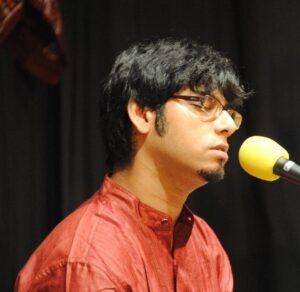
Sayan was born into a family with musical traditions and roots in Santiniketan. He has been fascinated with Rabindrasangeet since childhood.
Sayan has trained under Sugato Chattopadhyay, a disciple of Rabindrasangeet legend Subinoy Roy. Sayan belongs to a uniquely traditional school of Rabindrasangeet, known for its loyalty to Tagore’s original compositions rendered in a restrained style.
Sayan has performed for radio, television and various cultural organisations. He is associated with various musical projects as a vocalist, composer and guitar player, having given solo performances in India and abroad. He also sings and composes music for amateur theatre productions in Kolkata. He has recorded a music CD of Tagore songs. Recently, Sayan sang on the soundtracks of two documentaries on Rabindranath, one of them on Tagore’s paintings.
Sofie Gardestedt – Swedish poem

Sofie is the author of Jewel in the Lotus – a journey in Tibet, her acclaimed poetic account with photography, weaving together her experience as a Western traveller in Tibet – encounters, landscapes, religious beliefs – and the cultural-political context that conditions the living situation today.
Sofie feels that Tagore’s poems transcend time and place, representing romanticism, philosophy, morality, simplicity and sublime imaginary that could touch everyone. Visiting Santiniketan, Sofie felt enkindled by its balance-with-nature lifestyle and Tagore’s principle of teaching students in the shade of a tree.
Sofie has been Director of the South Sweden European Office, European Commission official and Swedish Embassy official in Brussels. As co-owner of O’Dance Events, she organises dance and fitness classes, events and holiday-trips around the world.
Tirthankar Roy – musician (esraj)
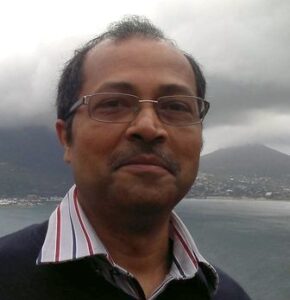
Tirthankar Roy hails from Santiniketan, where he started taking esraj lessons from the renowned esraj-player the late Ranadhir Roy.
Later, he took lessons from the tarshehnai exponent the late Vinayak Vora, and sarangi maestro Dhrubajyoti Ghosh.
He performs frequently as an accompanist in London.
He is an academic by profession, and is Professor of Economic History at the London School of Economics.
The Shakespeare Birthplace performance (May 2012)
The Story of Gitanjali was originally researched and written by Jayanta Chatterjee in 1998. It was revised by Obhi Chatterjee for a performance in the garden of Shakespeare’s Birthplace on 6 May 2012 to mark the 151st birth anniversary of Rabindranath Tagore.
